Is Knee Replacement Surgery Right for You? Here’s How to Decide

If you have been struggling with chronic knee pain and finding it harder to stay active, you’re not alone. As an orthopaedic specialist, I see many people who feel overwhelmed by their knee issues. Often, they have tried painkillers, physiotherapy, and lifestyle changes, yet the pain persists.
So, how do you know when it’s time to consider knee replacement surgery? Let me share my perspective.
What is Knee Replacement Surgery?
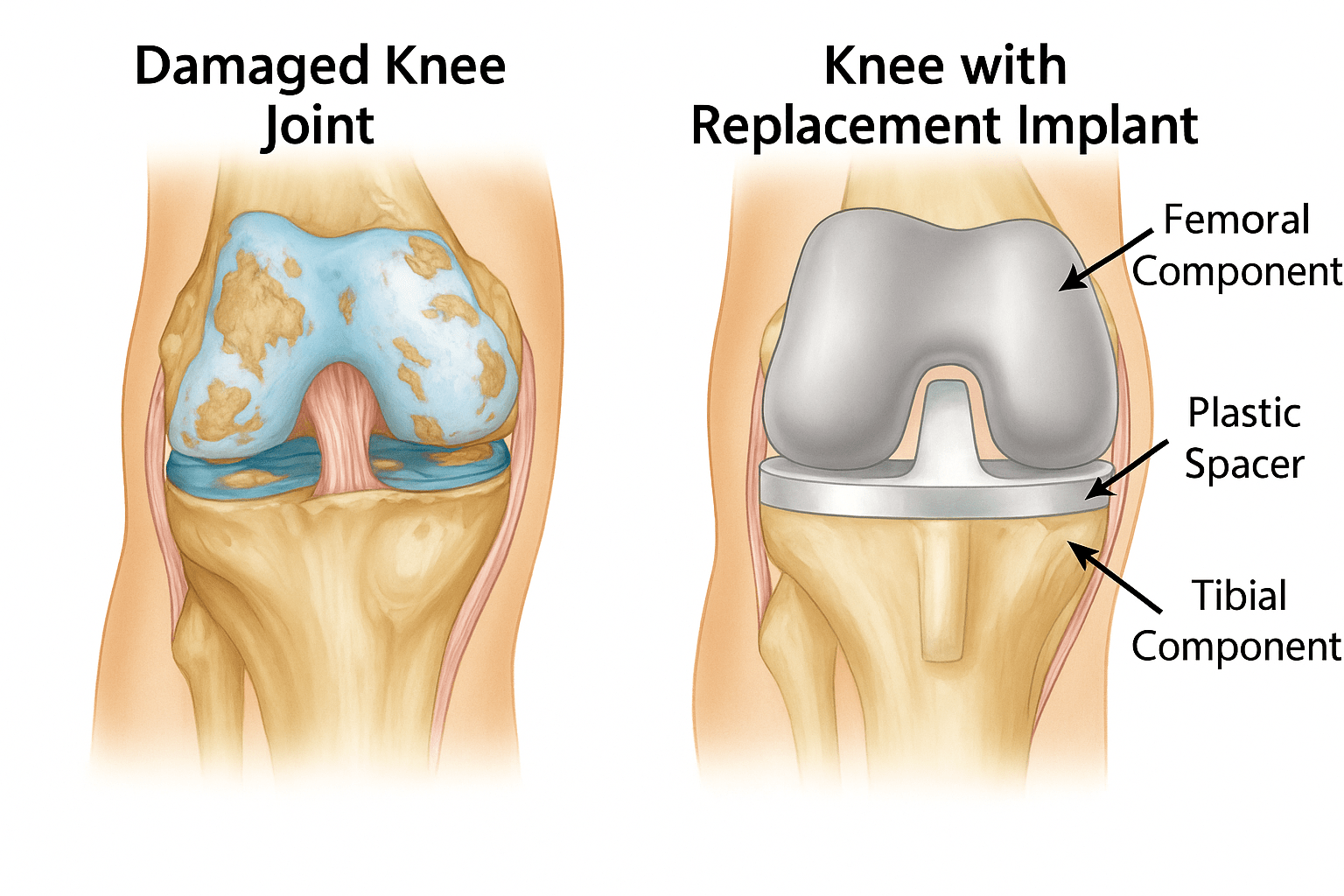
Also known as knee arthroplasty, knee replacement is a procedure in which a damaged or worn-out knee joint is replaced with an artificial implant. This new joint can dramatically improve mobility and reduce pain, making it a popular option for people with severe osteoarthritis, rheumatoid arthritis, or serious knee injuries.

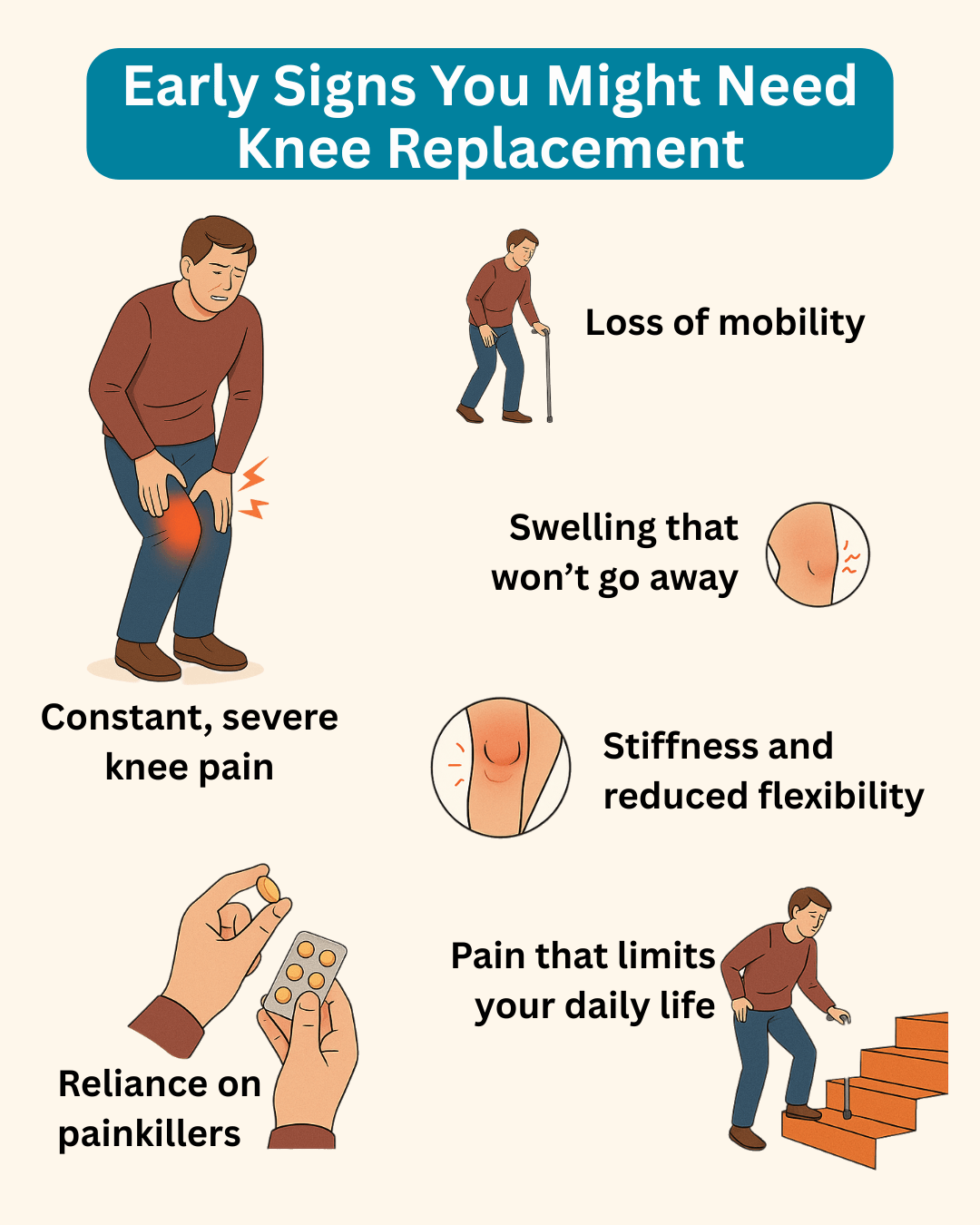
Early Signs You Might Need Knee Replacement
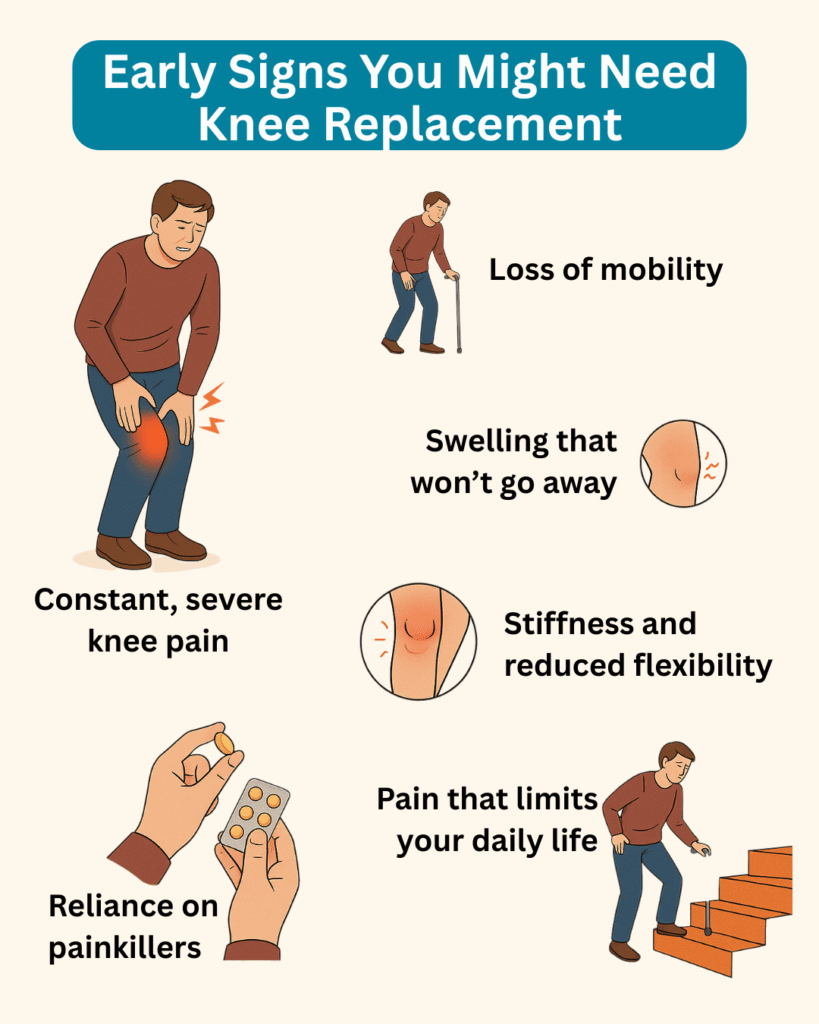
These are the key red flags I look for in my patients:
Constant, severe knee pain – Pain that does not let up, even at night or when you’re resting.
Loss of mobility – Difficulty walking, climbing stairs, or even standing for short periods.
Swelling that won’t go away – Ongoing inflammation that does not respond to other treatments.
Stiffness and reduced flexibility – If you can’t bend or straighten your knee easily.
Pain that limits your daily life – When basic activities become too painful to enjoy.
Reliance on painkillers – If you need medication daily, it’s time to explore other options.
My Advice: Delay Knee Replacement as Much as Possible
I always tell my patients:
“Knee replacement should be delayed as much as possible. When you reach the point where you can’t think about anything except the pain, when pain becomes your only focus, that’s the time to consider knee replacement. Knee replacement surgery is primarily for older people, so we aim to delay it as long as possible for the best outcome.”
It’s about finding the right balance. If you are still able to do the activities you enjoy even with some discomfort, I recommend trying non-surgical treatments first, such as:
Weight loss – Reducing stress on the knee
Physiotherapy – Strengthening muscles around the joint
Knee supports or braces – Offering stability and relief
Corticosteroid injections – Reducing inflammation
These approaches can often provide relief for months or even years.
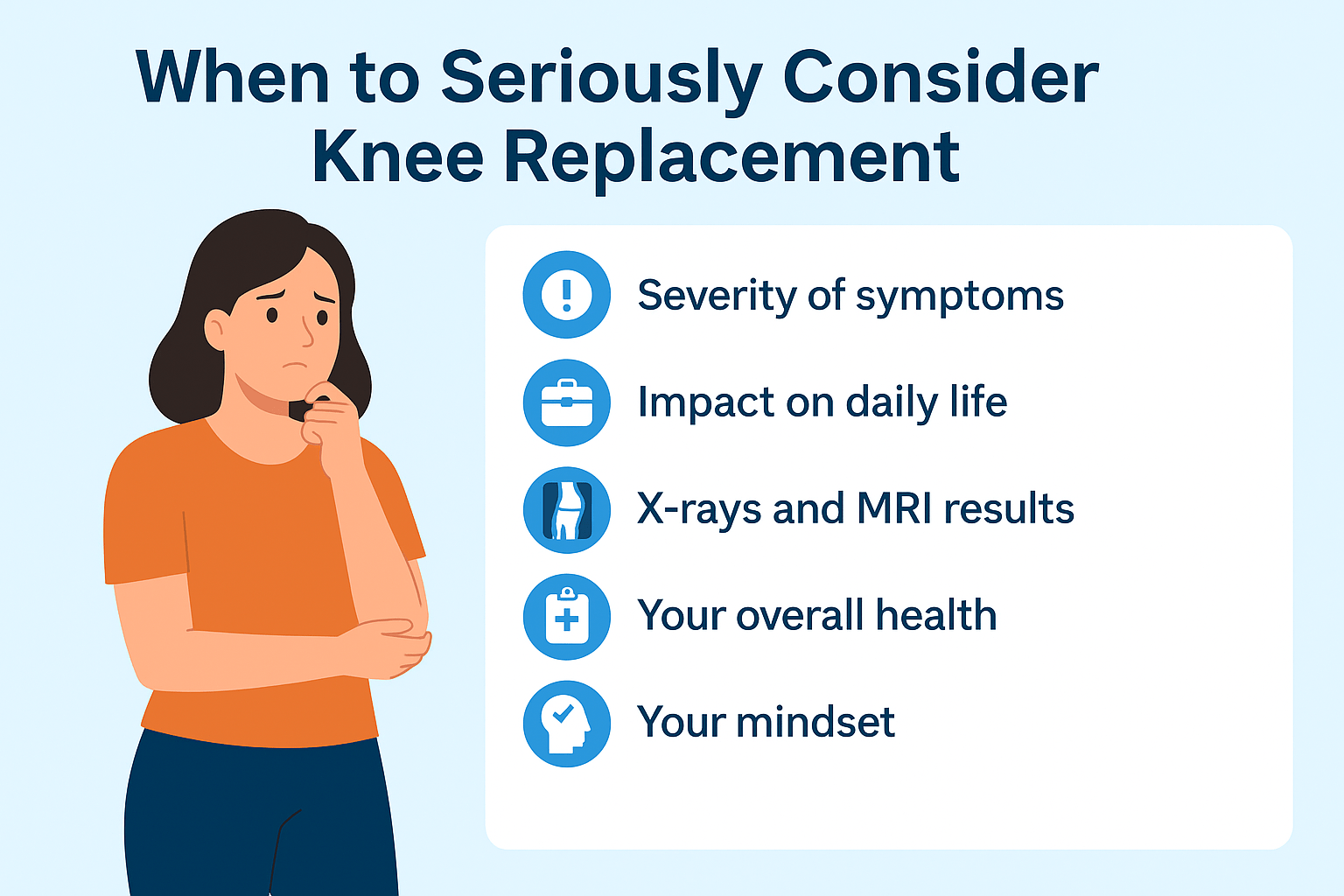
When to Seriously Consider Knee Replacement
If you have tried all the above and your pain dominates your life, that’s when I advise looking at knee replacement. Here is what else I consider:

Severity of symptoms – Is pain stopping you from doing the things you love?
Impact on daily life – Are you struggling to work, care for your family, or enjoy hobbies?
X-rays and MRI results – Imaging helps us see how much damage is present.
Your overall health – Conditions like diabetes or obesity can affect recovery, but don’t rule you out.
Your mindset – Are you motivated to do the necessary rehabilitation after surgery?
Key Benefits of Knee Replacement
For those who are good candidates, knee replacement can:
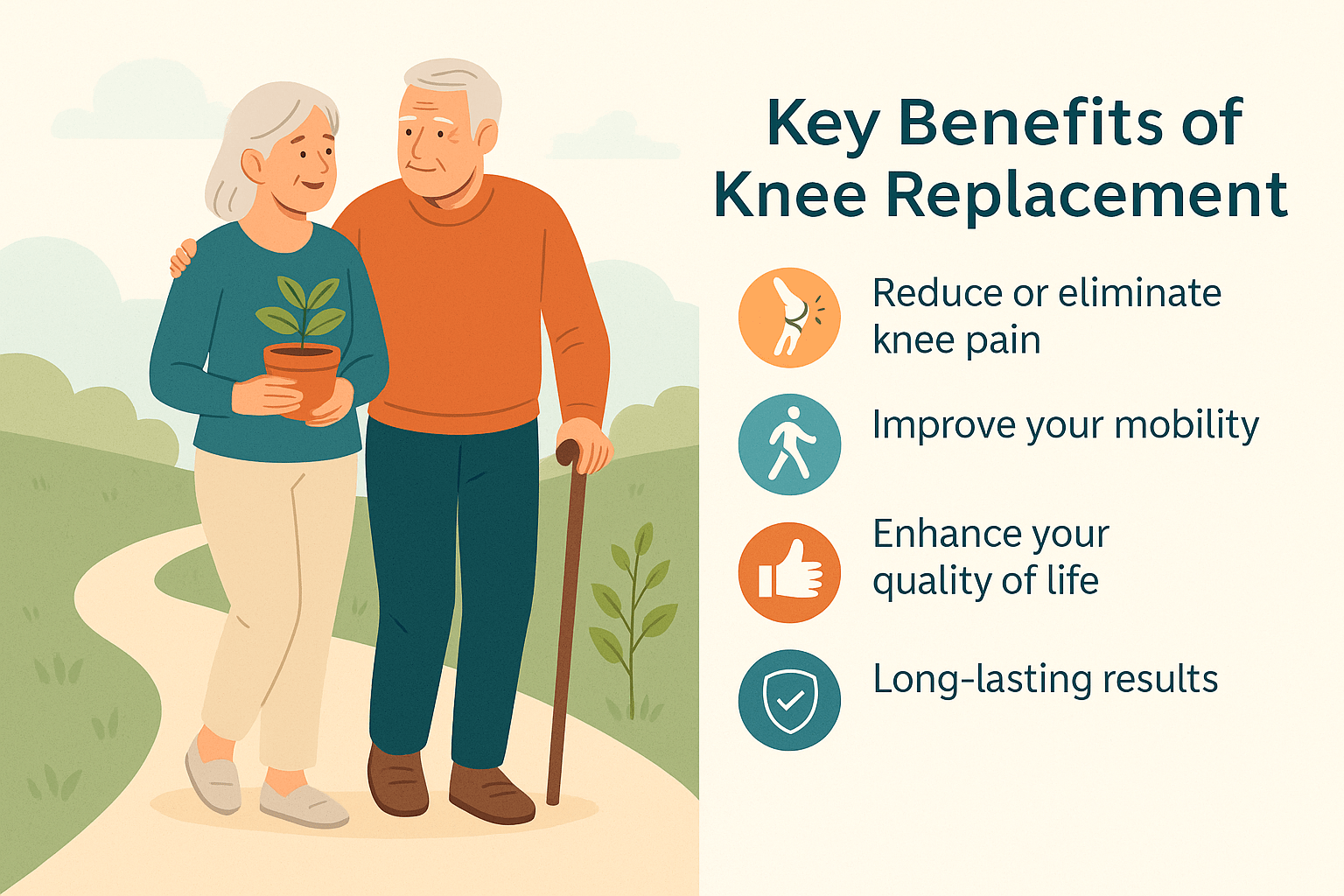
Significantly reduce or eliminate knee pain
Improve your mobility – Making walking, gardening, and playing with grandchildren easier
Enhance your quality of life – Less pain can bring back confidence and independence
Provide long-lasting results – Today’s implants often last 15–20 years or more

Questions I Recommend Asking
If you are thinking about knee replacement, here are some questions I encourage my patients to ask me:
“Am I a good candidate for knee replacement surgery?”
“Have I truly exhausted all non-surgical options?”
“What will recovery involve, and how long will it take?”
“What can I expect in the first weeks after surgery?”
“How can I prepare for the best outcome?”
Life After Knee Replacement
The good news? Most people find they can return to low-impact activities like walking and swimming within a few weeks. Full recovery takes about three to six months, and physiotherapy is essential.
“Your knees carry you through life. Don’t let pain stop you from going where you want to go.”
Take the Next Step
If knee pain has taken over your life, let’s talk about how knee replacement can help you regain your independence and joy. Every patient’s journey is unique, and I am here to guide you, step by step.
Do not wait until pain becomes your only focus. Book an appointment today, and let’s find the right solution for you.
Dr. Nawaid Ahmed
Orthopaedic Specialist